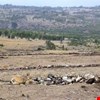
Water is a source of conflict around the Berki River Basin in Ethiopia, predominantly a consequence of a lack of IWRM awareness and an institutional framework. Action was taken to implement an IWRM pilot project to account for different stakeholder interests, resulting in the development and adoption of the Berki Basin IWRM. Key lessons drawn from the project include the importance of capacity building, consensus building, and the importance of decentralised multi-stakeholder platforms for conflict management.
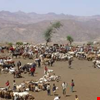
In 2004, action was taken to address some major challenges in Ethiopia through the Ethiopia Water Supply, Sanitation and Hygiene Movement. The objectives were to promote improved water, sanitation and hygiene practices and gain political and social commitment. The initiative has enjoyed great success. Lessons learnt include the importance of defining responsibilities and obligations of members, the importance of appointing local staff that facilitates the communication, and the importance of regular funding.

The farmers in the Volta river basin generally rely on rain-fed agriculture. However, insufficient or irregular rainfall frequently puts farmers at risk of losing their crops. Farmers must have access to a reliable water supply to sustain their livelihoods. In line with the problems highlighted, the Challenge Program on Water and Food (CPWF) set out to find ways to strengthen the capacity of the famers, communities and other stake holders in the basin. As a lesson learnt, it is reasonable to expect stakeholders to adopt improved agricultural practices if such new practices are of their own benefit. Experiences show that stakeholders will only participate in innovation platform meetings when they see the value of doing so.

Lake Jipe is facing a number of environmental and management problems which if not addressed, might lead to the disappearance of the lake. These problems include siltation, soil erosion, recurring droughts leading to shrinking fishery, deforestation, reduced lake run off, overgrazing and invasive waterweeds. The Lake Jipe Basin Integrated Management Plan (2009-2014) was developed in a consultation with various stakeholders including government, civil society, private sector and the local communities.
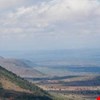
The Lake Basin Development Authority was set up to manage the entire catchment area of all rivers draining into Lake Victoria. However, its performance was not to the expectation. A further, action was taken to decentralise management and priority was given to achieve access to basic water requirements for the poor, as well as quality of water and improving availability of water for livestock and irrigation. The key lesson learnt is the importance of a participatory approach.
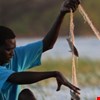
Lake Naivasha is an internationally renowned Ramsar site located in the Rift Valley in Kenya. But unlike most other designated wetlands of international importance, the water in Lake Naivasha also anchors a flourishing horticultural industry. The Lake Naivasha Riparian Association (LNRA) was established in 1929 to protect local land owner’s rights. and the LNRA became more strident in trying to balance the impact of the expanding commercial interests surrounding the lake with protecting its environmental integrity.
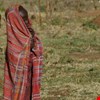
The Maasai live in an area of Kenya that has no water in the rivers for half a year. To address the water scarcity, the Water for the Maasai project was initiated. In this project, the Maasai, the donor and the NGO work closely to cooperate in the key issues of education, training and long-term guidance. The key lesson is that it takes time to build trust among donors, NGOs and native populations.

To meet demand, the water sector of Lesotho is undertaking institutional reforms and tackling financial and technical constraints. Action was initiated through a study conducted in four phases including data collection, development options, financing strategy and integration of the findings. The project was carried out in through capacity building activities in cooperation with several stakeholders. Predominantly, this case study illustrates the importance of combining data from several authorities into one consistent format.
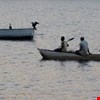
To implement policy change is a process that takes time. During this time, it is possible that the people involved change, resulting in a loss of knowledge. In Malawi, action was taken to combat institutional memory loss by involving as many high-level decision-makers as possible and by organising awareness raising workshops. This demonstrates that it is possible to avoid the loss of knowledge when key decision and policy-makers change.

Encouraged by regional developments, Mali initiated the process to implement IWRM. This was done in three stages: 1) a project team and a Steering Committee were set up to define the management and steering framework of the project, 2) a situation analysis was developed and discussed with broad stakeholder groups and 3) a provisional Action Plan was prepared. This case study illustrates the key moments and events of the process of elaboration of the IWRM.